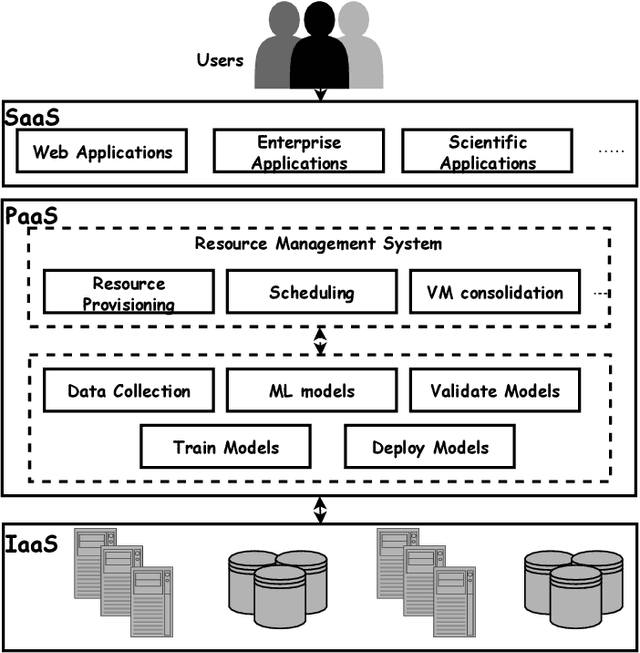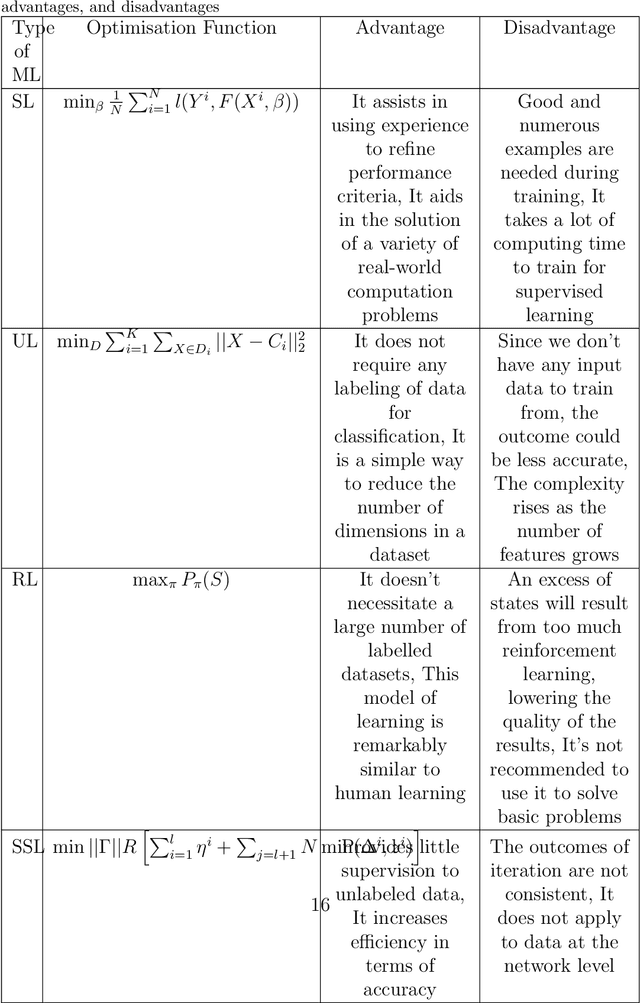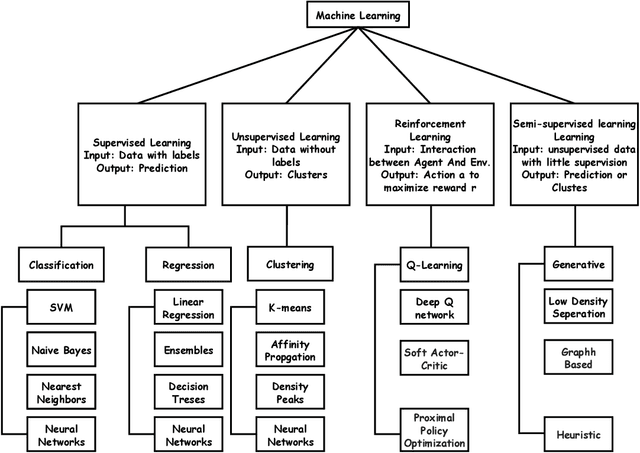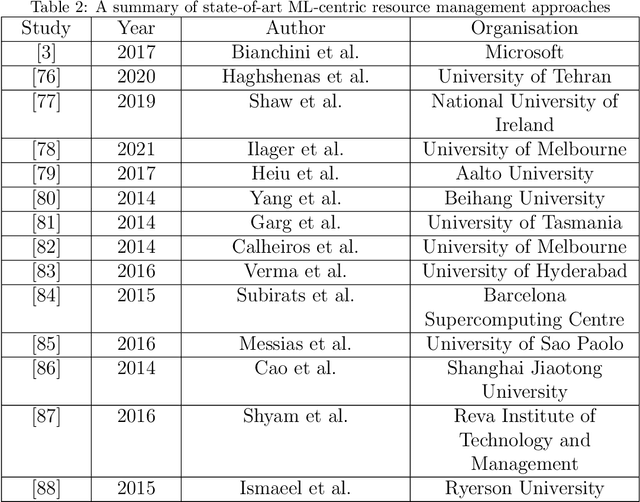Tahseen Khan
Machine Learning (ML)-Centric Resource Management in Cloud Computing: A Review and Future Directions
May 09, 2021



Abstract:Cloud computing has rapidly emerged as model for delivering Internet-based utility computing services. In cloud computing, Infrastructure as a Service (IaaS) is one of the most important and rapidly growing fields. Cloud providers provide users/machines resources such as virtual machines, raw (block) storage, firewalls, load balancers, and network devices in this service model. One of the most important aspects of cloud computing for IaaS is resource management. Scalability, quality of service, optimum utility, reduced overheads, increased throughput, reduced latency, specialised environment, cost effectiveness, and a streamlined interface are some of the advantages of resource management for IaaS in cloud computing. Traditionally, resource management has been done through static policies, which impose certain limitations in various dynamic scenarios, prompting cloud service providers to adopt data-driven, machine-learning-based approaches. Machine learning is being used to handle a variety of resource management tasks, including workload estimation, task scheduling, VM consolidation, resource optimization, and energy optimization, among others. This paper provides a detailed review of challenges in ML-based resource management in current research, as well as current approaches to resolve these challenges, as well as their advantages and limitations. Finally, we propose potential future research directions based on identified challenges and limitations in current research.
 Add to Chrome
Add to Chrome Add to Firefox
Add to Firefox Add to Edge
Add to Edge